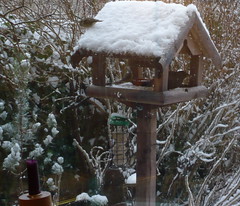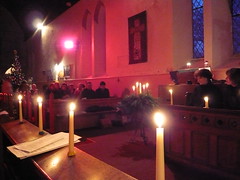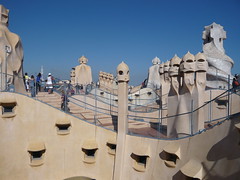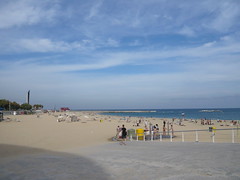 I've written of this before, when I was singing to that lively three-year-old in the background (can't help feeling it wouldn't work now, but I'll return to that). This time I sang another lullaby, Watts' Cradle Song, to an American (I think) tune arranged by Mr B for our women's choir, 8+1. The melody is in the alto range, and I've had it on the brain for the past few weeks. The words were somewhat random , as I'm hopeless at remembering them, but phrases like "here's no ox about thy bed" seemed suitably soothing, and after gazing intently at me as I sang, Anna's eyes drooped and in no time at all she was sound asleep. She was sitting in this upright position, too, so the sense of communication was very real - until she flopped. I continued singing quietly as I put her to bed, and that was that.
I've written of this before, when I was singing to that lively three-year-old in the background (can't help feeling it wouldn't work now, but I'll return to that). This time I sang another lullaby, Watts' Cradle Song, to an American (I think) tune arranged by Mr B for our women's choir, 8+1. The melody is in the alto range, and I've had it on the brain for the past few weeks. The words were somewhat random , as I'm hopeless at remembering them, but phrases like "here's no ox about thy bed" seemed suitably soothing, and after gazing intently at me as I sang, Anna's eyes drooped and in no time at all she was sound asleep. She was sitting in this upright position, too, so the sense of communication was very real - until she flopped. I continued singing quietly as I put her to bed, and that was that.I can't stress how important I think this live singing is for young children. It's not the same when nursery rhymes, lullabies and so on are played on CDs or - worse - distorted by electronic toys. The vibration, the tailoring of volume to the moment, the possibility for variety - these all contribute to what is, after all, as old as the hills.
Incidentally, big sister still loves to sing - though she does give me a row for using the traditional words as the end of Mary had a baby. You can't please all the people all of the time ...



















